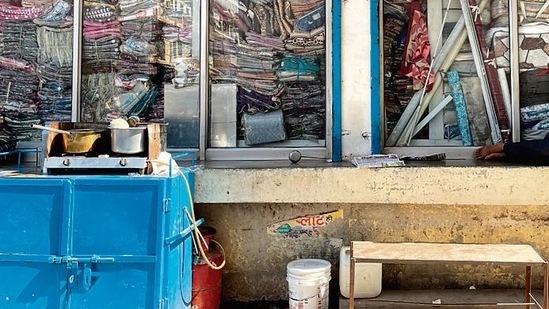Delhiwale: Once upon a chai stall
“Dhanda manda hain (business is slow),” he says gloomily, shaking his head. It is impossible to relate this Mr Singh to the Mr Singh of the pre-pandemic era. He used to be so cheery then, always chatting and laughing.
His world has reduced. Stacked against a showroom’s glass wall, Jaiveer Singh’s pavement kiosk in Gurugram’s Roshanpura has lost its joy. This afternoon, the stall seems barely alive. A man is asleep beside it. While Mr Singh is unhurriedly preparing a fresh round of chai in a chipped pan.

“Dhanda manda hain (business is slow),” he says gloomily, shaking his head. It is impossible to relate this Mr Singh to the Mr Singh of the pre-pandemic era. He used to be so cheery then, always chatting and laughing. Forever busy carrying trays of chai to the surrounding shops, he would be a happy bubble that continually bobbed along the crowded lanes. His stall’s decline set in with the coronavirus, he says. “Earlier I would end up using 15 liters of milk daily, today it is barely 5 litres.”
The stall’s most remarkable aspect was Mr Singh’s handwritten bahikhata, his account book. Pages after pages scrawled in blue link, the precious bahikhata listed the names of his daily customers, which included shopkeepers, labourers, rickshaw pullers, vegetable sellers and “courier wale”—each name marked with the number of times that person had chai at any given day. The account book was an archive into the daily life of a place. It consisted of thick sheaves of pages sewed along one side, exactly the way poet Emily Dickinson would famously sew her handwritten poems into little booklets.
And today the bahikhata is nowhere to be seen. “I no longer need it, I get too few orders.” Mr Singh is not clear about what he did with the bahikhata, and isn’t bothered about it. “So many people disappeared from the bazaar,” he says, explaining that a great number of labourers and shop assistants returned to their villages during the worst days of the pandemic and haven’t yet returned. “Those were my customers.”
Today it is difficult to comprehend that Mr Singh’s stall was the epicentre of the area’s social ecosystem. Here, traders gossiped about the bazaar. Here, disputes were allowed to run their full course. Every third passerby stopped to exchange a word with Mr Singh. He was like a hyperlocal Homeric bard who would be asked—many times over—to recount the exact details of every street squabble that would unfold.
Those times are gone, Mr Singh mutters resignedly. Even so, one thing has remained the same that connects this day to the pre-pandemic days. Mr Singh’s adrak-flavoured chai is as delicious.




